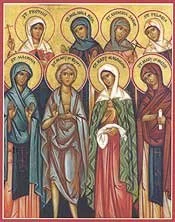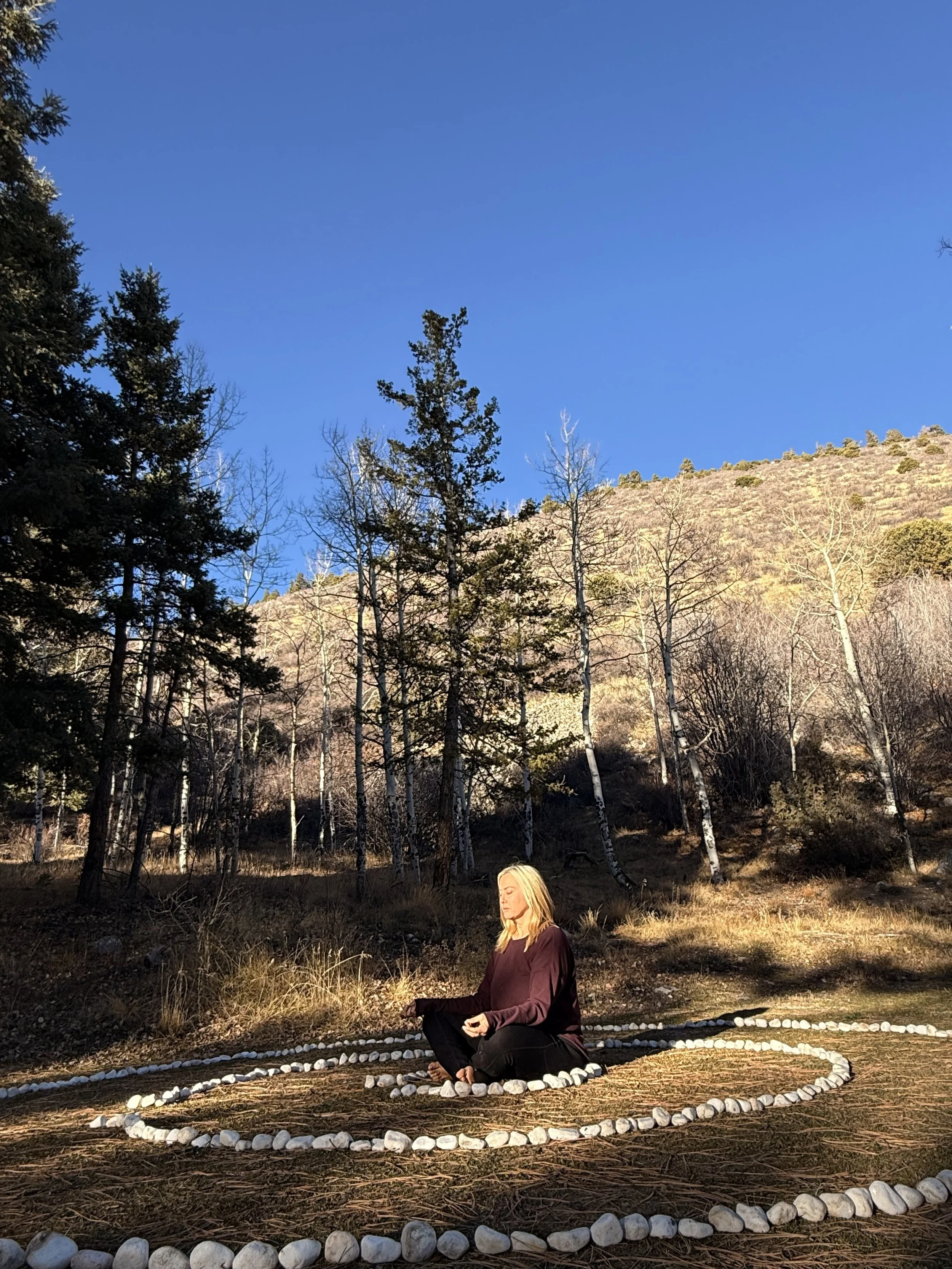Walking in The Way of Jesus: The Desert Mothers and Fathers
Anyone who’s read my love Notes from the Wilderness knows that the desert speaks to my soul. Its vast, empty spaces create room for reflection, for listening, and for seeking intimate communion with the in dwelling Spirit of God. Like me, for centuries, those who were hungry for God ventured into these wildernesses places—geographical and spiritual deserts—to quiet the noise of the world and draw near to God.
Long before the wellness movement or our culture’s obsession with productivity, there were women and men who withdrew from the noise of empire and ego to listen deeply to God. They were called the Desert Mothers and Fathers—early Christian mystics who chose obscurity over acclaim, simplicity over striving, and presence over performance.
I didn’t go looking for them. But they found me in a season when I could no longer keep up with the pace I was living. I was soul-weary—burned out from doing too much, striving too hard, always performing, always producing. Even in my spiritual life, I was exhausted. I craved the presence of God, but I had no margin to listen. That’s when I encountered their stories—simple, wise, and disruptive in the most healing way.
These mystics didn’t chase status or hustle for success. They traded ambition for intimacy. They taught that transformation doesn't happen through more effort—but through surrender. Through rest. Through silence. Through a life reorganized around the presence of Christ.
And I couldn’t help but wonder—what if the desert was the way back home to myself and to God?
If you're reading this, I imagine something inside you longs for that too.
Maybe you're the one who holds everything together, but inside you feel unglued.
Maybe you move through your days with a carefully curated smile, while your body tells another story—tight jaw, shallow breath, a soul that hasn’t exhaled in months.
Or maybe you’re on a healing journey, learning to listen again—to your body, to the Spirit, to the voice of God that speaks not in shouts but in whispers.
Whoever you are, you are not alone.
Their Teachings
The Desert Mothers and Fathers did not assimilate into mainstream culture. And that’s exactly why we need their wisdom now. Their rhythms were slow. Their prayers were embodied. Their spirituality was rooted not in productivity, but in presence.
They remind us:
You are not what you produce.
The body is sacred ground.
Silence is not empty—it is full of God.
Rest is resistance, and it is holy.
Their lives challenge us to practice The Way of Jesus not as a theology only, but as a rhythm—a lived experience in the nervous system, the breath, the bone. Their desert wasn’t barren; it was alive with sacred encounter.
What would it look like for you to enter your own kind of desert?
To choose stillness instead of striving?
To trust that less might actually be more with God?
This is the invitation:
To come away for a while.
To practice presence.
To remember your belovedness.
To walk with Jesus—not in burnout, but in unhurried communion.
At Loto Wellness Collective, we’re recovering the beauty of these ancient practices—not to escape the world, but to be more rooted in it. To return to the wisdom of the early Church, to create space in our modern lives for the sacred to break in, and to walk together—body, mind, and spirit—in the rhythm of rest.
I’m still learning. Still unlearning. Still stepping into the spaciousness these spiritual ancestors carved out for us. But I know this: when I slow down, when I listen, when I let myself be held instead of always holding others—I meet Jesus there.
May you find Him too—in the quiet, in the breath, in the sacred desert of your own life.
Their History
The Desert Fathers and Mothers were early Christian mystics and ascetics in the 4th and 5th centuries AD, who lived in the deserts of Egypt, Palestine, Syria, and Arabia, renouncing the world to follow God's call.
“Desert Mother” is a feminist theological neologism that compares these women to the Desert Fathers.
They lived in monastic communities or as hermits. They were known for their wisdom and teaching, and their focus on inner stillness. Their sayings reflect their desire for asceticism and their understanding of hesychia, which means stillness, quiet, or tranquility.
NOTE: Hesychia is a Greek word and concept that refers to the spiritual stillness that is considered necessary for prayer. Hesychia is also the root of the word Hesychasm, which is a tradition of prayer in Eastern Orthodox Christianity.
The Desert Mothers influenced ascetic and monastic traditions, and their sayings can be found in The Sayings of the Desert Fathers and Palladius' Lausiac History. Their lives offer us a timeless invitation to practice the way of Jesus in a deeper, more intentional way.
The ancient Desert Mothers and Fathers offer us a vision of what is possible when we slow down, lean into grace, and allow God to reshape our lives from the inside out.
My time in the wilderness is transforming me into a modern day Desert Mother—a woman who lives a life of prayer and spiritual practice in literal and spiritual deserts, often drawing on my wisdom and Divine teachings to guide others in modern society, with a focus on inner peace and contemplation.
My journey into their wisdom has profoundly shaped my understanding of spiritual growth and Divine connection, and I hope it will inspire yours. Wherever you are—whether you feel like you’re thriving or barely holding on—know that the invitation to walk in The Way of Jesus is always open.
The desert may seem like a harsh place, but it’s where streams of living water often flow most freely.
Let’s embrace the wisdom of the Desert Mothers and Fathers together, not as a way to escape life, but as a way to transform it, one prayer, one breath, and one step closer to Jesus at a time.
Keep Reading…
Dig Deeper…
Forgotten Desert Mothers, The: Sayings, Lives, and Stories of Early Christian Women
Laura Swan introduces readers to the sayings, lives, stories, and spirituality of women in the early Christian desert and monastic movement, from the third century on. In doing so, she finally sets the record straight that women played an important and influential role in early Christianity, indeed a role that has been long overshadowed by men.
The Forgotten Desert Mothers demonstrates, like no other work, that women have long had a history of leadership in Christianity. This engaging, eye-opening, and insightful work targets all faith seekers looking to reclaim the history and spirituality of the women who came before them, as well as to understand their own inner journey. It will be a welcome addition to courses on early church history, women's studies, and religious studies.
Disclosure: This post contains an affiliate link. If you click through a link and make a purchase, it may earn me a small commission, at no additional cost to you! See our disclaimer for details.








For the Activist, compassion is not a concept — it is a calling. Justice is not ideology — it is worship. Action is not distraction — it is prayer embodied. This pathway is where the heart of God touches the wounds of the world. Where faith becomes flesh and love becomes action.